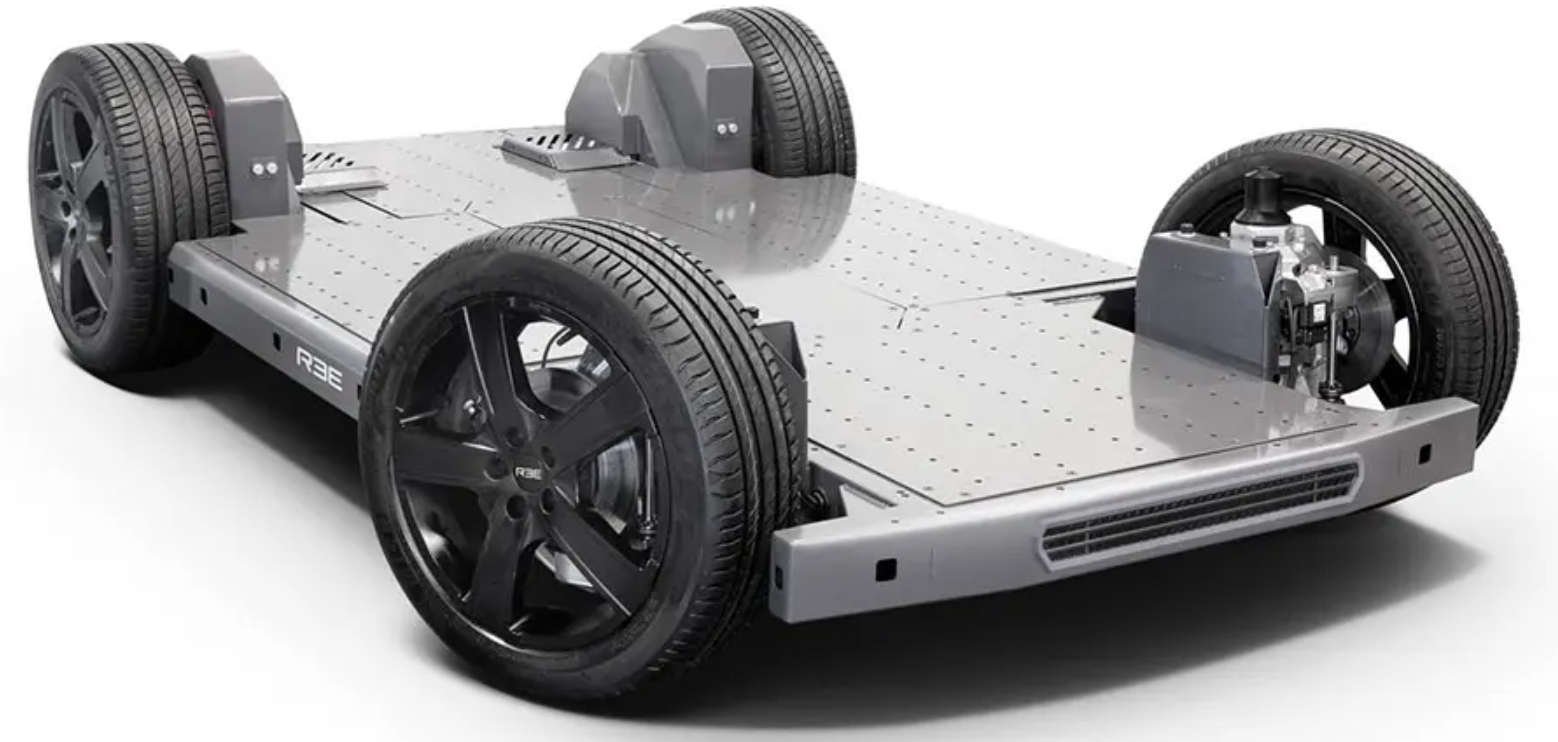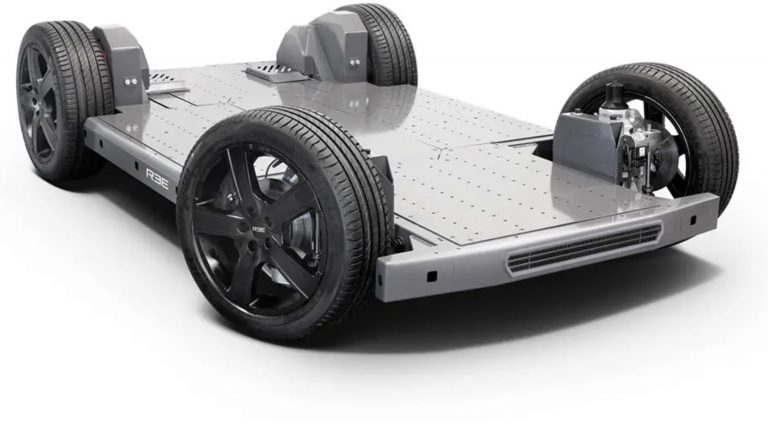Platform Start-ups

REE Plattform with 4 corner modules
(Mit freundlicher Genehmigung/Courtesy REE Automotive Ltd. [Homepage])
Management Summary
Platform start-ups are not vehicle manufacturers but system suppliers, i.e. they do not sell cars but BEV drive systems. Similar to solar start-ups, this business idea sounds interesting at first, but on further reflection the limits of this concept quickly become apparent.
The electric drive system is the key component of a battery electric vehicle that determines the key performance characteristics of a BEV model. These include, in particular, the range and fast–charging capability.
No major vehicle manufacturer will want to become dependent on a fledgling platform start-up for such a critical system. Almost all major vehicle manufacturers, regardless of whether they are start-ups or traditional companies, develop the electric powertrain themselves and at most have individual components such as the battery cells or the electric motor supplied.
In this respect, platform start-ups can only serve market segments with smaller volumes, such as those typically found in the truck and van sector. Unit numbers in the millions are unlikely with this business model.
At the same time, vehicle manufacturers themselves can become platform suppliers. Examples include VW (supplier) and Ford Europe (customer), Geely (supplier) and Izera (customer) and, more recently, Xpeng (supplier) and VW (customer).
Due to the very high volumes, VW and Geely are able to offer their own platforms at much lower prices, which makes the competitive situation even more difficult for the platform start-ups.
For the reasons mentioned above, we are only aware of 2 platform start-ups worldwide. Both manufacturers rely on steer-by-wire systems, which can also pose a security risk.
The US start-up US start-up CANOO has developed a modular BEV platform with a fixed wheelbase of 2.85 m, in which all components of the electric drivetrain, including the HV battery, are integrated. Due to a lack of platform customers, CANOO is now building its own vehicles on this platform in manageable quantities, including a van for Walmart.
The Israeli start-up start-up REE is taking an even more radical approach. REE has developed so-called corner modules in which the tires, electric motor, power electronics, wheel suspension and drive shafts are integrated in a compact design. This makes it possible to create platforms with any wheelbase and track width. The technology is currently being evaluated in truck projects, but we are not aware of any orders in larger quantities.

BEV drive train platform from CANOO
(Mit freundlicher Genehmigung/Courtesy of Canoo Technologies Inc. [Press Release])

Walmart VAN based on CANOO platform
(Mit freundlicher Genehmigung/Courtesy of Canoo Technologies Inc. [Press Release])
CANOO´s BEV platform has a fixed center distance of 2.85 m, in which all components of the electric drivetrain, including the HV battery, are integrated. The fixed wheelbase makes the platform less flexible than that of REE, which relies on a variable wheelbase. The platform can be configured as a 2- or 4-wheel drive, and the HV battery can have a capacity of 20 – 80 kWh. Steering takes place via a steer-by-wire system, i.e. there is no longer a mechanical connection between the steering wheel and steering.
Various vehicle types such as vans or pick-up trucks can be mounted on the platform. In August 2022, CANOO announced that Waltmart had ordered 4,500 delivery vehicles based on the platform. With this number of units, CANOO is several orders of magnitude behind other BEV start-ups.

REE Platform with 4 corner modules
(Mit freundlicher Genehmigung/Courtesy REE Automotive Ltd. [Homepage])

Demo vehicle with Morgan-Olsen chassis
(Mit freundlicher Genehmigung/Courtesy of REE Automotive Ltd. [Homepage])
REE Automotive was founded in 2019 as an Israeli start–up by Daniel Barel and Ahishay Sardes, both of whom had successfully built up a wheelchair company. REE has designed compact corner modules in which all powertrain components, i.e. tires, electric motor, power electronics, wheel suspension and drive shafts, are integrated. The platform allows for any wheelbase and track width and can therefore be used very flexibly for car and truck bodies; each wheel can be steered individually. E-drive, brakes and steering are controlled via electronic control signals, i.e. there is no longer a mechanical connection between the steering wheel and steering or brake pedal and brake (X-by-wire system).
For commercial vehicles in US categories Class 5-7 (Medium Duty 8845 kg – Heavy Duty 15,000 kg), REE has designed a 400-volt platform including HV battery. Based on this platform, Ree has built a Class 5 delivery vehicle as a technology demonstrator in cooperation with body manufacturer Morgon Olsen, which is characterized by particular agility and a small turning circle thanks to its rear-axle steering.
